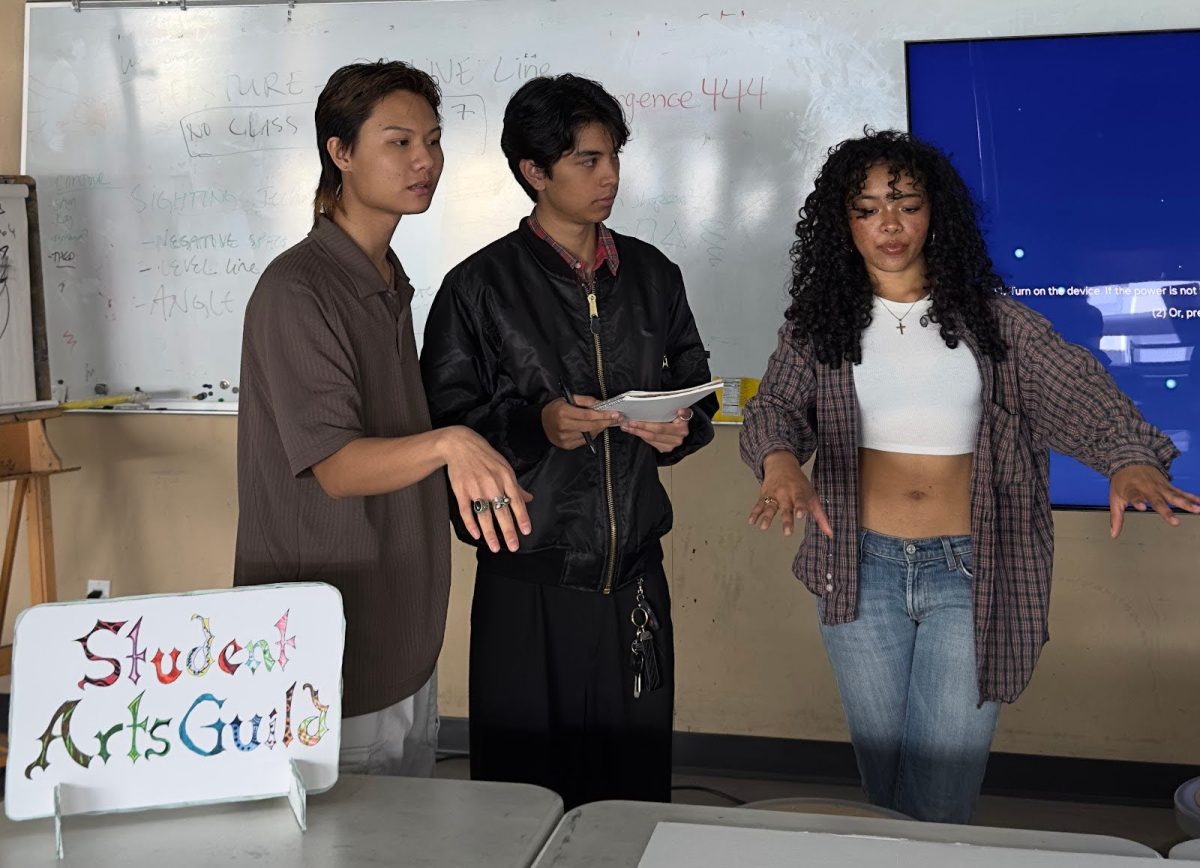The play, set in 17th century Italy, is reknown for retelling the classics with a fresh light
Berkeley’s Shotgun Players has extended their run of “The Rover” by a week, giving Bay Area theater enthusiasts a second chance at seeing the Players topical take on Aphra Behn’s classic play.
Set in 17th century Naples during the Carnival Masquerade, the story follows three women: Angelica, an adored courtesan (Lauren Spencer), Hellena, a clever and “amorous” nun (Caitlyn Louchard) and Florinda, a love-struck maiden (Siobhan Marie Doherty). Doubling them is a trio of English sailors, the honorable Belville (Alex Lyndon), the foolish and comical Officer Blunt (Justin Gillman), and the sociopathic “Rover” Willmore (Jerhemy Kahn). What ensues is an elaborate tale of love, lust, theft, betrayal, and all other manners of sinister intrigue.
The minimalist set and court-sized stage of the theater, as well as the rave-inspired music and costumes create an anachronistic effect, which may make audiences feel like they have inexplicably crossed into some kind of Shakespearean Burning Man.

The overlapping of the past and present, however, is precisely what the Shotgun Players have in mind. Despite its humorous tone, there is a deeper and more serious message behind the performance. The Players 2015 season is made up entirely of plays written by women, as a response to the gross underrepresentation of female playwrights in contemporary theater.
Behn was working in a time that was even lonelier for female writers (in fact, she is credited with being the first successful female playwright) and seems to have been all the bolder for it. The play is filled with scenes and dialogue that are as relevant today as they were 300 years ago. The play openly asks, “How much has sexual politics changed since 1677?” The unfortunate answer audiences might find is, “Not much.”
Indeed “The Rover” could have easily been set in the present with the English trio being replaced by marauding frat boys and substituting the Carnival in Naples with spring break in Cancun (For that matter what is Tinder, if not an unending masquerade?). In one of the plays several near-rape scenes, the Rover says to his intended victim, “Those eyes of thine gave the first blow, the first provocation,” a poetic way of saying, “She was asking for it.” In a similar scene, a dejected Officer Blunt declares, “I will be revenged on one whore for the sake of another.” It shows that Behn may have understood the true depths of the male-ego better than Freud ever did.
Its heavier themes aside, the play is fun and funny with strong performances from its cast, and succeeds to get more than a few laughs from the audience. It is well choreographed, with some impressive sword play which could help quell anyone’s interseasonal “Game of Thrones” blues. With the discount offered by the Players, students have no excuse for missing it.
























